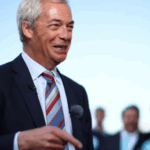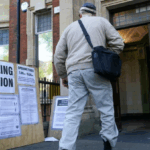Inflation across the euro zone remained steady at 2.2% in April, just above the European Central Bank’s (ECB) official target, but an unexpected rise in underlying price pressures may complicate the path toward further interest rate cuts.
Data released on Tuesday showed that core inflation — which excludes volatile energy and food prices — rose to 2.7% from 2.4% in March, beating economists’ expectations of 2.5%. The increase was largely driven by a sharp uptick in services prices, suggesting that inflationary pressures are proving more persistent than anticipated.
While headline inflation was in line with March’s reading, and only slightly above the ECB’s 2% target, the rise in core inflation is likely to make some rate-setters more cautious ahead of the bank’s next policy meeting on June 5.
“There’s growing nervousness among policymakers about cutting rates too quickly while core inflation remains sticky,” one euro zone official said. “The jump in services prices cannot be ignored.”
However, the broader economic outlook may still push the ECB toward easing. The ongoing trade tensions sparked by the United States have slowed global growth, weakened energy prices, and strengthened the euro, making imports cheaper. These developments could eventually pull inflation down, even below target.
Analysts now see more than an 80% chance of a rate cut in June, with markets pricing in at least one additional cut later in the year. Such moves would bring the ECB’s deposit rate down to 1.75% or lower — marking what could be the bank’s eighth cut in 13 months.
The ECB’s messaging has also evolved. While it previously forecast inflation reaching its 2% goal only in 2026, recent remarks from policymakers suggest they now consider the target as effectively achieved, due in part to the disinflationary effects of the trade war.
Other risks remain on the horizon. Economists note that increased defence spending could eventually stoke inflation by widening budget deficits, though any such impact is likely to be delayed and modest.
Despite the recent rise in core inflation, investors’ long-term expectations remain anchored close to the ECB’s 2% target, suggesting confidence that price growth will stay under control.
As the ECB balances persistent domestic inflation with global deflationary pressures, June’s policy meeting is shaping up to be a critical juncture in its fight to stabilise prices without stifling growth.

















